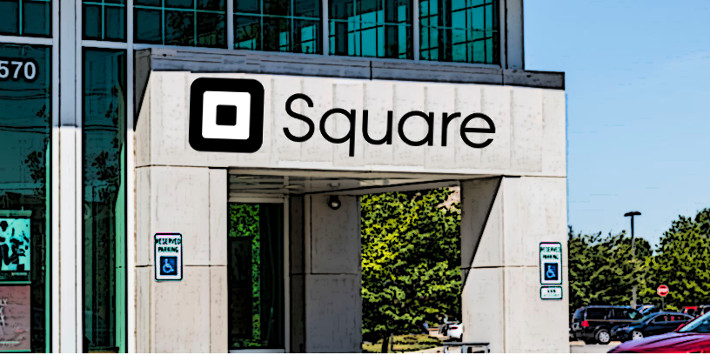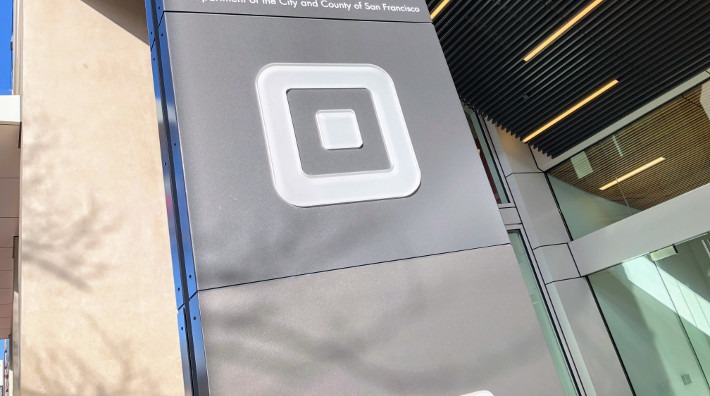Kevin Travers was a Reporter at deBanked.
Articles by Kevin Travers
Square Officially Becomes a Bank
March 2, 2021 Square launched its own industrial bank Monday, after receiving a charter from the FDIC. The Salt Lake City, Utah-based bank will begin underwriting business loans under the Square Financial Services title.
Square launched its own industrial bank Monday, after receiving a charter from the FDIC. The Salt Lake City, Utah-based bank will begin underwriting business loans under the Square Financial Services title.
“Bringing banking capability in-house enables us to operate more nimbly,” CFO and Chair of the new bank Amrita Ahuja said, “which will serve Square and our customers as we continue the work to create financial tools that serve the underserved.”
Square had previously offered credit products through a partnership with Utah-based Celtic bank. The move answers the questions “buy or build” when it comes to fintech banking. Many fintech firms, some of who even claimed to be anti-bank alternatives, have made the switch to either partnering with a nationally chartered bank or outright becoming a bank themselves.
“We thank the FDIC and Utah DFI for their partnership enabling us to reach this milestone, and look forward to continuing to expand access to financial services at this critical time for small businesses,” Ahuja said.
Linear CEO on New Merger
March 1, 2021 Fundation and ODX were in talks to merge for over a year, Linear and past Fundation CEO Sam Graziano said. Then covid changed plans, but by mid-summer talks were back on.
Fundation and ODX were in talks to merge for over a year, Linear and past Fundation CEO Sam Graziano said. Then covid changed plans, but by mid-summer talks were back on.
There was recognition by the leadership team at Fundation and CEO of OnDeck Noah Breslow that ODX and Fundation were competitors in the same banking-as-a-service space and could merge to serve the entire market, Graziano said.
Launching with the press release last week, Linear is majority-owned by Fundation, but Graziano said it was looked at as a “cashless transaction” and merger between two companies. This upcoming year, Linear plans “To merge the two businesses more structurally,” Graziano said, “continue to merge the two businesses, deepen industry relationships, and continue to expand the scope of clients.”
Fundation’s minor business funding branch will continue under the Fundation brand, Graziano said.
NYC Fintech Women Ring Closing Bell
February 26, 2021 NYC Fintech Women rang the closing bell at the Nasdaq exchange with a speech by founder Michelle Tran. Photos of the members could be seen on the big Nasdaq board in Times Square.
NYC Fintech Women rang the closing bell at the Nasdaq exchange with a speech by founder Michelle Tran. Photos of the members could be seen on the big Nasdaq board in Times Square.
“I’m so proud to be standing with the team as we ring the closing bell for NYC Fintech Women and all women in FinTech! I started NYC FinTech Women 3 years ago to build a community of strong female FinTech leaders and male allies to support each other in our professional advancement in FinTech,” Tran said before the event. “I absolutely LOVE hearing the stories of how this community has helped with stories of women finding new roles, getting promoted, getting more pay, and finding their own personal board.”
The organization said the bell was rung on behalf of all women in fintech and promoted an upcoming international women’s day event featuring Nasdaq and the UN on March 8th.
The 5,000 member strong organization was founded in 2017 to provide members of any gender with opportunity and connection.
Coinbase Files S-1 for IPO
February 25, 2021 Coinbase filed an S-1 Thursday morning, a significant step in gaining a listing on the Nasdaq. It’s like Christmas morning for the crypto-obsessed financial media, tearing into the document like wrapping paper on a new bike to pry into the private crypto-selling firm’s operations.
Coinbase filed an S-1 Thursday morning, a significant step in gaining a listing on the Nasdaq. It’s like Christmas morning for the crypto-obsessed financial media, tearing into the document like wrapping paper on a new bike to pry into the private crypto-selling firm’s operations.
For starters, Coinbase was profitable in 2020, as it should be with ATH bitcoin prices. The company posted a net income of $322 million on net revenue of $1.14 billion. There was no listing price for shares, though according to Axios, private pre IPO shares to investors went as high as $373/share.
Coinbase said it had 43 million verified users, 2.8 million of which transact monthly. There are $90.3 billion in assets on the platform and $193 billion in volume traded last year. The majority of revenue comes from Bitcoin and Ethereum trading. In an age of sudden fintech SPAC IPOs, Coinbase is launching a stand-alone public offering.
The buzz on social media is over the first completely remote company listing. Coinbase stated, “In May 2020, we became a remote-first company. Accordingly, we do not maintain a headquarters.” Though someone pointed out on Twitter, Coinbase, Inc still files taxes through a San Franciscan address.
The pandemic might not be the only reason Coinbase went remote. US-based coin Ripple was recently sued by the SEC for violations of securities laws. Accordingly, in the “risk factors” section, along with a warning about the natural volatility of cryptocurrency prices, Coinbase describes the similarly ever-changing nature of crypto regulation.
“We are subject to an extensive and highly-evolving regulatory landscape and any adverse changes to, or our failure to comply with any laws and regulations could adversely affect our brand, reputation, business, operating results, and financial condition,” Coinbase said.
Another strange thing to see in an S-1 was that the form was sent to the unknown identity of Satoshi Nakamoto, the person or group that created the currency itself. Coinbase somehow sent the S-1 to the founding Bitcoin block address at:
One of the risk factors Coinbase listed was the unforeseen result if Nakamoto was ever identified: “The identification of Satoshi Nakamoto, the pseudonymous person or persons who developed Bitcoin, or the transfer of Satoshi’s Bitcoins.”
Satoshi has never been truly identified beyond the initial launch of Bitcoin. Satoshi’s original block address has been sent 68 bitcoins since inception or more than $3.2 million at today’s valuation. Some other curiosities include the definitions page:
Flash Boys 2? Ethereum Bot Wars
February 25, 2021 A whole new group of traders is colluding to beat the market. No, not Redditors or fiber-optic wielding Wall Street “quants.” Today, in both a simpler and way more complex way money can be made using bots to outbid trades on cryptocurrency markets.
A whole new group of traders is colluding to beat the market. No, not Redditors or fiber-optic wielding Wall Street “quants.” Today, in both a simpler and way more complex way money can be made using bots to outbid trades on cryptocurrency markets.
According to research by Flashbots, in the past 30 days alone, $106.5 million of Ethereum (ETH) has been extracted “permissionlessly” from trades on the ETH blockchain. The problem has gotten progressively worse throughout 2020, where Flashbots researcher Alex Obadia started their search.
“After scraping the Ethereum blockchain starting from the first block of 2020, we’ve classified more than 1.3M MEV transactions,” Obadia wrote. “And found a total of at least $314M worth of Extracted MEV since Jan 1st, 2020.”
It’s called Miner Extracted Value (MEV) and Flashbots scoured millions of ETH transactions to find when it happened. Flashbots was created because of the vulnerabilities of decentralized crypto markets, like MEV exploits.
It’s stated that a simple version of how this extraction can be done is by a miner piggy-backing off existing trades, the bot can find a trade waiting to be completed in the blockchain memory pool, and “memsnipe,” creating an identical trade but raising the transaction price to complete it.
The flaw was first documented in a 2019 Cornell economics and crypto research paper.
“Blockchains, and specifically smart contracts, have promised to create fair and transparent trading ecosystems. Unfortunately, we show that this promise has not been met,” Cornell researchers found. “Like high-frequency traders on Wall Street, these bots exploit front-running in DEXes, paying high transaction fees and optimizing network latency to front-run, i.e., anticipate and exploit, ordinary users’ DEX trades.”
Flashbots updated the findings to claim that miners were rarely the culprits and that the term should be amended to Maximum Extracted Value.
ODX Merges with Fundation
February 25, 2021 The ODX brand from OnDeck is splitting off to combine with Fundation, forming a new SMB digital banking company called Linear Financial Technologies.
The ODX brand from OnDeck is splitting off to combine with Fundation, forming a new SMB digital banking company called Linear Financial Technologies.
The news follows the recent disclosure from Enova that it was looking to divest ODX in addition to OnDeck Canada and OnDeck Australia.
The new firm, headed by the current CEO of Fundation, Sam Graziano, will be an online banking service provider. Linear will take on Fundation’s service of processing loans for big and small banks, reportedly processing a total of $13 billion.
“Over the years, our combined platforms have served hundreds of thousands of business customers through many of the leading business banking providers in the market, deploying modern banking experiences that their customers and front-line colleagues expect in the digital era,” said Graziano in the published announcement. “Together as Linear, we’ll have the resources to more rapidly expand the breadth of our solutions to bring more value to our clients.”
Enova will retain a minority stake in the new firm.
Square Originated $254M in Loans in Q4, Nearly a Billion For the Year
February 23, 2021 Square released its Q4 earnings on Tuesday, disclosing that the Square Capital division originated 57,000 loans for $254 million.That brings them to $957 million on the year.
Square released its Q4 earnings on Tuesday, disclosing that the Square Capital division originated 57,000 loans for $254 million.That brings them to $957 million on the year.
Just before the earnings release, Square reported they had also bought $170 million worth of additional bitcoin. After purchasing $50 million in October, no wonder the firm doubled down. Reportedly 48% of Square’s total revenue in 2020 was from bitcoin and bitcoin trading. 85% of all value added in 2020 was bitcoin-related.
Overall, Square added $9 billion in net revenue in 2020. $4.5 billion of which was Bitcoin revenue.
Pot Legalized In Garden State
February 23, 2021 On one of the ugliest days of sleet and rain in recent memory, it was bright for some: NJ Gov Phil Murphy signed three legal weed bills into existence Monday Morning.
On one of the ugliest days of sleet and rain in recent memory, it was bright for some: NJ Gov Phil Murphy signed three legal weed bills into existence Monday Morning.
After weeks of debate over taxes and penalties for those under 21, legal marijuana passed twenty minutes before the deadline to set legalization rules- Murphy’s movement to legalize pot in the Garden State nearly ran out of time.
But shortly after the Senate came to an agreement, Murphy put pen to paper. Recreational users can possess up to six ounces of marijuana without legal consequence. Users under 21 will be in civil trouble if caught, using a three-strike, no-fine warning system.
The new law also decriminalizes underage alcohol use and halts the police’s ability to stop kids if they smell like pot- they can only give out warnings. Past Marijuana convictions and charges have been made easier to expunge, with comments from the ACLU that this is just the beginning of fair and legal drug culture in the Garden State.
Rec users will have to wait until Murphy sets up the Cannabis Regulatory Commission, and for NJ’s 13 medical marijuana dispensaries to ramp up production and open their doors. The current grower market in NJ can just meet the demands of the state’s 100,000 medical consumers according to NJ.com, and as the only state to legalize in the entire DC-NYC metro area, there will be at least a slight uptick in demand.
Experts still think that new stores could open in late 2021. Until then, Murphy can at least finally say he met his goal to legalize pot in his first 100 days- three years later.
“Starting immediately, those who had been subject to an arrest for petty marijuana possession, an arrest that may have kept them from a job or the opportunity to further their education,” Murphy said. “Will be able to get relief and move forward.”






























